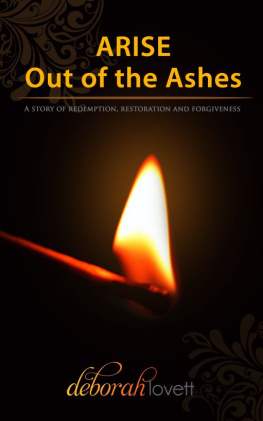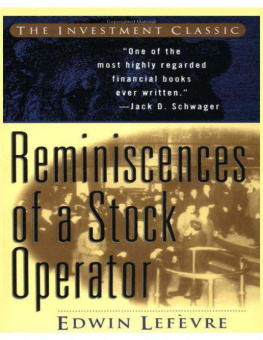Raphael Lefevre - Ashes of Hama
Here you can read online Raphael Lefevre - Ashes of Hama full text of the book (entire story) in english for free. Download pdf and epub, get meaning, cover and reviews about this ebook. year: 2013, publisher: Oxford University Press USA, genre: Politics. Description of the work, (preface) as well as reviews are available. Best literature library LitArk.com created for fans of good reading and offers a wide selection of genres:
Romance novel
Science fiction
Adventure
Detective
Science
History
Home and family
Prose
Art
Politics
Computer
Non-fiction
Religion
Business
Children
Humor
Choose a favorite category and find really read worthwhile books. Enjoy immersion in the world of imagination, feel the emotions of the characters or learn something new for yourself, make an fascinating discovery.

- Book:Ashes of Hama
- Author:
- Publisher:Oxford University Press USA
- Genre:
- Year:2013
- Rating:5 / 5
- Favourites:Add to favourites
- Your mark:
- 100
- 1
- 2
- 3
- 4
- 5
Ashes of Hama: summary, description and annotation
We offer to read an annotation, description, summary or preface (depends on what the author of the book "Ashes of Hama" wrote himself). If you haven't found the necessary information about the book — write in the comments, we will try to find it.
Ashes of Hama — read online for free the complete book (whole text) full work
Below is the text of the book, divided by pages. System saving the place of the last page read, allows you to conveniently read the book "Ashes of Hama" online for free, without having to search again every time where you left off. Put a bookmark, and you can go to the page where you finished reading at any time.
Font size:
Interval:
Bookmark:
ASHES OF HAMA
The Muslim Brotherhood in Syria
RAPHAL LEFVRE


Oxford University Press, Inc., publishes works that further
Oxford Universitys objective of excellence
in research, scholarship, and education.
Oxford New York
Auckland Cape Town Dar es Salaam Hong Kong Karachi
Kuala Lumpur Madrid Melbourne Mexico City Nairobi
New Delhi Shanghai Taipei Toronto
With offices in
Argentina Austria Brazil Chile Czech Republic France Greece
Guatemala Hungary Italy Japan Poland Portugal Singapore
South Korea Switzerland Thailand Turkey Ukraine Vietnam
Copyright 2013 by Oxford University Press
Oxford is a registered trade mark of Oxford University Press in the UK and certain other countries.
Published by Oxford University Press, Inc
198 Madison Avenue, New York, New York 10016
Published in the United Kingdom in 2013 by C. Hurst & Co. (Publishers) Ltd.
www.oup.com
Oxford is a registered trademark of Oxford University Press
All rights reserved. No part of this publication may be reproduced, stored in a retrieval system, or transmitted, in any form or by any means, electronic, mechanical, photocopying, recording, or otherwise, without the prior permission of Oxford University Press.
Library of Congress Cataloging-in-Publication Data
Lefvre, Raphal.
Ashes of Hama : the Muslim Brotherhood in Syria / Raphal Lefvre.
p. cm.
Includes bibliographical references and index.
ISBN 978-0-19-933062-1 (alk. paper)
1. Jamiyat al-Ikhwan al-Muslimin (Syria)History. 2. SyriaHistory20th
century. 3. SyriaHistory21st century. I. Title.
BP10.J386L44 2013
322.42095691dc23
2013014739
1 3 5 7 9 8 6 4 2
Printed in India
on Acid-Free Paper
I would like to thank all the people without whom this research project would not have become a reality. I am primarily indebted to Professor George Joff who not only provided me with excellent supervision throughout my studies at the University of Cambridge but has also acted as an insightful adviser and a constant source of support ever since. My warmest thanks are also directed to Patrick Seale who, from the very beginning, supported my willingness to dig into Syrias history and shed light on previously little-discussed aspects by providing much advice. I am also deeply indebted to Ignace Leverrier whose expert knowledge of Syrian political life helped to guide me through the maze of Baathist politics. Without his numerous contacts and the quality of the material he kindly provided me with, this study would not have been possible. The same is true of Ahmed al-Othman whose generosity is a key pillar upon which this book rests. His willingness to introduce me into the world of the Syrian Muslim Brotherhood proved invaluable. In this respect, I am also thankful for the access I was granted to numerous leaders and rank-and-file members of the Islamist organization as well as their opponents from various fieldssome of whom spoke on condition of anonymity. This study owes much to their trust. I would also like to express my warmest gratitude and friendship to Mehdi Laghmari in Paris, Mohammed Laroussi and Hadia al-Attar in Aachen, Abdullah Ali, Walid Safour, Obeida Nahas and Malik al-Abdeh in London, Emira Bahri and Yassine in Tunis, and Ahmed al-Othman in Istanbul and Paris, who all contributed greatly to the publication of this book by expressing their readiness to help translate original material from Arabic. I am also deeply grateful for Rana Kabbanis friendship and her early encouragements both of which acted as important sources of inspiration. Additionally, many experts and critical readers gave insightful feedback on earlier drafts of this study. In this respect, I am particularly thankful to Dr Bente Scheller, Dr Nikolaos Van Dam, Professor George Joff and Professor Philippe Droz Vincent for their time. Needless to say, any mistakes that remain are entirely my own.
As this book went through several rounds of drafts and re-drafts, I am deeply grateful for all the time Anne Wolf, Anna Carden and Banu Turnaoglu spent reviewing earlier versions, giving substantial feedback. The staff at Hurst were also very helpful in this respect and in particular I owe much to Michael Dwyer who, by immediately giving his trust and confidence, made the publication of this book possible. The process of writing took a long time, however, and at times proved challenging. All my thanks go to Anne Wolf who, in addition to reading and editing successive drafts, also proved to be a constant and unyielding source of support. Finally, I would like to stress how much support I received from my family, whose sustained encouragement was a great source of motivation.
When references to the advent of an Arab Spring started to emerge after popular uprisings toppled regimes in Tunisia and Egypt, many commentators suggested it was unlikely that this revolutionary Arab mood would reach Syria. Throughout the month of February 1982, the Baath regimes most loyal forces shelled entire quarters of the city and bombed many of its residential areasleaving between 25,000 and 40,000 dead.
Analysts were right to point out the significance of the memory of the massacre in the hearts and minds of the Syrian people. What they failed to foresee, however, was that this collective scar would not forever restrain Syrians from defying the regime that rules over them. Instead, it would fuel such a degree of resentment and anger that the uprisings which started in March 2011 at Dara soon spread throughout the country with ever increasing pace and intensity. In virtually every Syrian city, the message of local opposition leaders and protest organizers soon boiled down to a simple sentence: We will not let the massacres of 1982 be repeated!
Soon, however, these Syrians must have felt as if they were reliving their own history. In February 2012 Bashar al-Assads younger brother Maher ordered a three week artillery siege of the Baba Amr quarter in Homs which left thousands of inhabitants deadmuch as Hafiz al-Assads regime henchmen had done to Hama exactly thirty years before.
The memory of atrocities suffered in the early 1980s by Syrias Islamists at the hands of the regime seemed to be an increasingly important mobilizing factor in the uprisings. A journalist, reporting on the revolt from northern Syria, observed: A village elder with a handgun strapped to his side [] said he was arrested [in the late 1970s] as part of the regimes crackdown on suspected Muslim Brothers and served 15 years in prison. In Aleppos countryside, the rebellion is fuelled by memories of that crackdown. Men in every village, it seems, can recite the names of men who were killed or disappeared into regime prisons or were forced into exile.
It is against this background that the rebels uncompromising demand for the overthrow of the regime should be understood: their call for revenge resonates with the countrys bloody history of opposition between the regime and its Islamist rivals. For me, the revolution started a long time ago, when my brother was arrested, confirmed a rebel in Damascus. He was part of the Muslim Brotherhoods revolution of 1980. Then, one day the mukhabarat intelligence men came in three cars and arrested him. Nobody knows where they took himnot even until now, 32 years later, he explained. Now my revolution is getting bigger.
But such a sense of historical continuity between the current uprisings in Syria and the situation prevailing in the 1980s is not only characteristic of anti-regime militants. Much of the support the Baathist rulers still retain among certain segments of the Syrian population is also framed in terms only understandable when seen through the prism of history. For instance, the apprehension voiced by members of minority communities about the demise of the secular Baath regime and its potential replacement by a government dominated by Islamist forces emerged out of the fear that they could again be the target of violence perpetrated by extremist Sunni groups. The Alawis in particular, a religious sect from which most of the countrys decision-makers come, have since March 2011 expressed their fear of a return to a situation similar to that which prevailed between 1979 and 1982. Then, sectarian provocations ignited by a handful of radical Islamic militants brought the country to the verge of civil war, drawing the various religious communities into a seemingly endless cycle of retaliation against one another.
Next pageFont size:
Interval:
Bookmark:
Similar books «Ashes of Hama»
Look at similar books to Ashes of Hama. We have selected literature similar in name and meaning in the hope of providing readers with more options to find new, interesting, not yet read works.
Discussion, reviews of the book Ashes of Hama and just readers' own opinions. Leave your comments, write what you think about the work, its meaning or the main characters. Specify what exactly you liked and what you didn't like, and why you think so.








